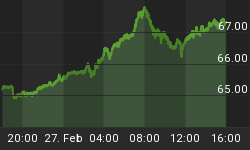With Yemen's oil revenues plunging, the government's push into the gas market seemed like an economic saving grace for a state wracked by poverty and terrorism, but analysts warn more thought should be given to carving out the country's post-petroleum era.
The infamous Christmas Day bomber's attempts to blow up a jet approaching Detroit - which Yemen-based al Qaeda in the Arabian Peninsula claimed responsibility for - has drawn unwanted attention to the country's vulnerability to terrorist movements.
Dwindling oil and water resources, high poverty and illiteracy, a ballooning population, rebel uprisings and separatist movements have made Yemen ripe for extremism.
Nestled in the southern tip of the Arabian Peninsula, Yemen is highly reliant on oil money, which accounts for 70 percent of the budget. But total reserves amount to about 2.8 billion to 3 billion barrels, which "really isn't much to write home about," S. Rob Sobhani, president and founder of Caspian Energy Consulting in Potomac, Maryland, told OilPrice.com.
In recent months, the government has tried to spark foreign interest: A delegation from Indonesia visited Sanaa, the Yemeni capital, in January to discuss investment in the oil and gas industry as well as the mining sector. And in February, France's Total signed a preliminary oil exploration deal for $32 million. The company was already leading a $4.5 billion liquefied natural gas plant that started production in October.
Major gas exports, however, are probably not "in the cards" for the Middle Eastern country, but some reserves may be moved within the region by pipeline to Oman and possibly to Saudi cities like Jeddah, Sobhani said. Yemen is strategically advantageous to all liquid natural gas markets, both in the Asia-Pacific basin and on either side of the Atlantic Ocean, he also wrote in the Christian Science Monitor in February.
Yemen needs "built-in consumers already lined up" to fuel the gas sector but where such interest will come from remains unclear, said Christopher Boucek, an associate in the Middle East program for the Washington-based Carnegie Endowment for International Peace. Boucek cited huge, "unfounded" fears in the United States that Yemeni natural gas tankers entering Boston's port, for example, constituted "some sort of a threat to national security."
Apart from drying-up oil reservoirs, the government is also contending with a legal process -- and "mechanics on the ground" for exploring, producing and extracting gas -- that are "not very well streamlined," Boucek noted, adding that Sanaa aims to fix these problems in a bid to court more foreign investors.
Traditionally, however, the country is viewed as a "boutique" market enticing smaller companies to "make their name," explained Boucek, making it uncertain why larger players would want to bid for these oil blocks. As a selling point, Yemen would probably argue that most of the country is unexplored and only a few basins are in production, but Boucek said he is "skeptical" that any new finds would be "major, commercially viable discoveries."
Concerns about terrorism have also failed to persuade oil giants to take a chance, he maintained. For years, some of the preferred targets of terrorists in the Arabian Peninsula have included workers in the energy sector and foreign firms, he said, also noting "scores of attacks" at the hands of pirates.
If the country can offer "attractive terms" to oil companies at a better rate than their neighbors, as well as provide certain security guarantees, "then absolutely we will see investment flowing into Yemen," predicted Sobhani.
After the attempted bombing in December, the government bolstered security at oil and gas facilities to guard against militant attacks, according to local media reports.
At the end of February, the Pentagon also reportedly approved $150 million in counterterrorism funding to Yemen, up from $67 million in the last fiscal year, including equipment and training to local counterterrorism forces.
Yet, Sobhani doubts this kind of international anti-terrorism assistance is enough to stabilize Yemen and sway reluctant foreigners to inject money into the economy.
"It's an uphill battle because you are looking at a population that is very young," he said. "You're looking at an enemy that can pay money to these young kids to join them, whether it's al Qaeda or your homegrown anti-American types."
Potential financiers also need to see good governance, which Yemen may now realize, Sobhani added.
Looking to the future, Yemen can meet the gas needs of other Gulf nations but probably only has enough resources for the next 10 or 15 years, he said. It's vital, he added, that the government use part of the foreign money fueling the gas industry to build other sectors like solar energy.
As it stands, Yemen has not directed "much serious, developed thought" to carving out competing economic sectors, charged Boucek of the Carnegie Endowment for International Peace. In actuality, "nothing on the horizon" will replace income previously earned from oil sales, leaving a gap that a potential natural gas windfall will not fill in time, Boucek cautioned.
In the meantime, he warned, "all of Yemen's other problems" will worsen -at a time when its government coffers are emptying.
By Fawzia Sheikh for OilPrice.com who focus on, Fossil Fuels Metals, Crude Oil Prices and Geopolitics To find out more visit their website at: http://www.oilprice.com















